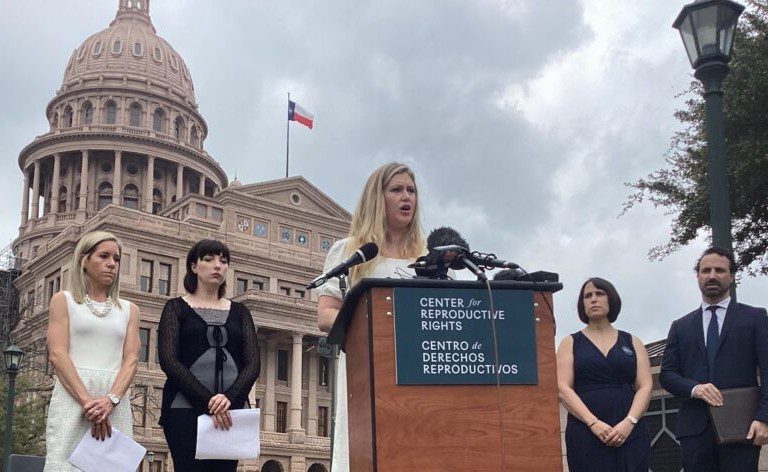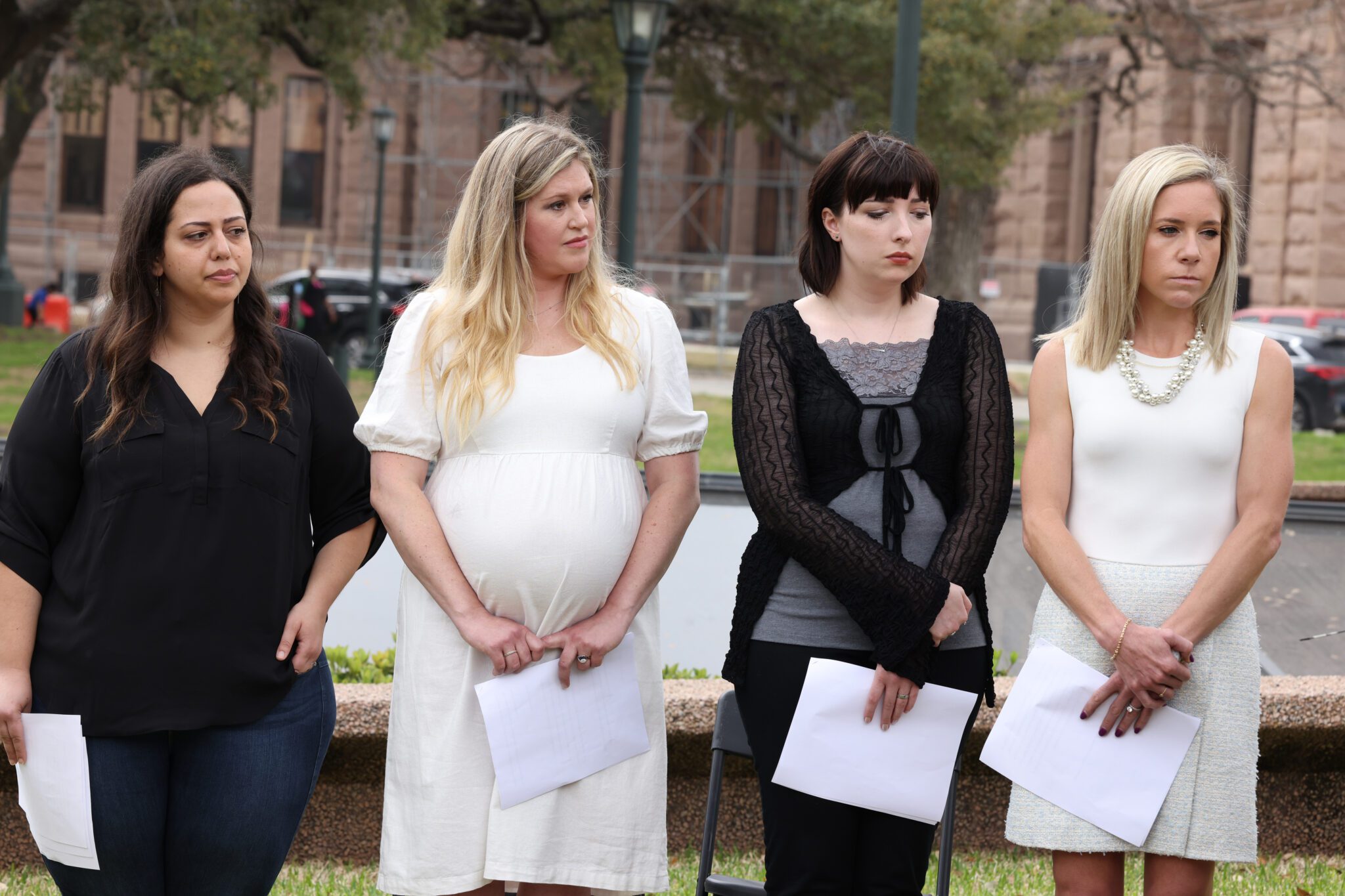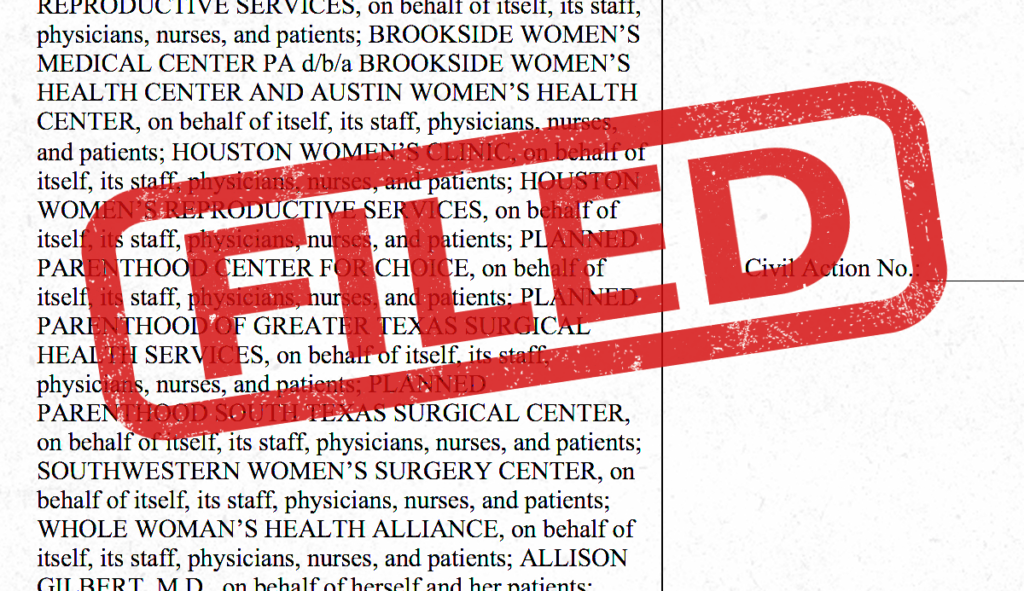After Ruling Clarifying Medical Exceptions to Texas’s Abortion Bans, Order Is Blocked While State Appeals
Injunction by Texas judge in favor of the Center's plaintiffs would have allowed abortions for severe pregnancy complications and fatal fetal diagnoses and protected physicians from prosecution for using their “good faith judgment."

District Court Judge Jessica Mangrum’s August 4 ruling on Zurawski v. State of Texas clarified the medical exception in the state’s abortion bans, enabling physicians to use their “good faith judgment,” in consultation with their pregnant patients, to determine when they need an abortion to preserve their health or their life. It also found S.B. 8, a vigilante bounty-hunting abortion ban, unconstitutional.
Read more about the case.
Zurawski v. State of Texas: Complete Case Information
View case details, news, documents, photos and more.
“The court has been clear: doctors must be able to provide patients the standard of care in pregnancy complications,” said Nancy Northup, president and CEO of the Center for Reproductive Rights. “That standard of care in certain cases is abortion because it is essential, life-saving healthcare. This decision is a win for Texans with pregnancy complications, however Texas is still denying the right to abortion care for the vast majority of those who seek it.”
But the state of Texas immediately appealed the ruling to the Texas Supreme Court late Friday, putting the injunction on hold while appeals proceed.
“It’s absolutely appalling that the state would appeal this ruling—a ruling meant to save women’s lives,” said Molly Duane, senior staff attorney at the Center. “It’s never been clearer that the term ‘pro-life’ is a complete misnomer. What our plaintiffs went through was pure torture, and the state is hell bent on making sure that kind of suffering continues.”
Case Seeks to Prevent Others from Suffering Trauma
The Center brought the case on behalf of 13 Texans and two obstetrician gynecologists (OB-GYNs) to clarify what constitutes “medical emergencies” under the state’s abortion bans. The Center filed the case in March and added additional plaintiffs in May. Each of the 13 plaintiffs had been denied abortions, as the conflicting language in the bans prevents doctors from using their medical judgment to determine when to offer patients this life-saving care. Physicians face up to 99 years in prison, at least $100,000 in fines, and the loss of their medical license for violating the abortion bans, which are among the strictest in the U.S.
Judge Mangrum’s ruling would have protected physicians from prosecution for using their “good faith judgment,” in consultation with the pregnant person, to provide abortion care for an emergency medical condition. “The Court finds that physical medical conditions include, at a minimum: a physical medical condition or complication of pregnancy that poses a risk of infection, or otherwise makes continuing a pregnancy unsafe for the pregnant person; a physical medical condition that is exacerbated by pregnancy, cannot be effectively treated during pregnancy, or requires recurrent invasive intervention; and/or a fetal condition where the fetus is unlikely to survive the pregnancy and sustain life after birth,” she wrote.
Plaintiff Dr. Damla Karsan, a Houston-based OB-GYN, welcomed the ruling. “It’s exactly what we needed,” she said. “The court has guaranteed that we can once again provide the best care without fear of criminal or professional retribution. We can once again rely on our knowledge and training especially in challenging situations where abortions are necessary.”
But the state’s appeal leaves physicians once again without clear guidance on when they can legally provide abortion care to their patients. Even with the injunction, the state’s bans deny most Texans the right to an abortion.
About the Plaintiffs
More about the Texas women and physicians who are plaintiffs in the case.
“The lives of pregnant people and their health and future fertility are still at risk,” said Duane. “Until the injunction is reinstated, there will continue to be pervasive fear and confusion among physicians, who remain unable to act in the best interests of their patients.”
Learn more about the plaintiffs here.
The lawsuit was filed by the Center for Reproductive Rights, Morrison & Foerster LLP, and Kaplan Law Firm on behalf of patients Amanda Zurawski; Lauren Miller; Lauren Hall; Anna Zargarian; Ashley Brandt; Kylie Beaton; Jessica Bernardo; Samantha Casiano; Austin Dennard, D.O.; Taylor Edwards; Kiersten Hogan; Lauren Van Vleet; and Elizabeth Weller as well as healthcare providers Dr. Damla Karsan, M.D. and Dr. Judy Levison, M.D., M.P.H.




